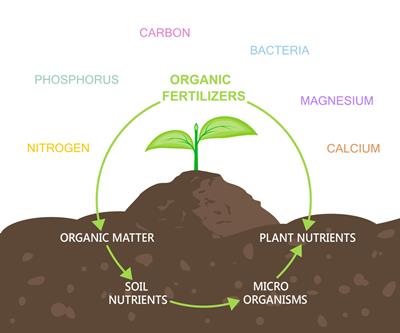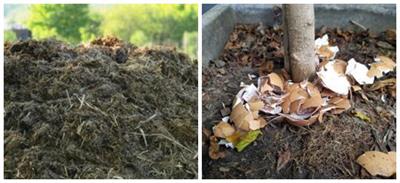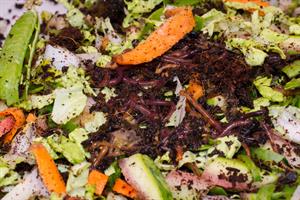PDF chapter test TRY NOW
Organic fertilisers are made from sources that occur naturally. They are of different kinds, such as plant-based, animal-based and mineral-based. Microorganisms also aid in the preparation of organic fertilisers.

Organic fertilisers
Organic fertilisers enhance the carbonic content in the soil needed for plants, thereby maintaining the properties of the soil by fixing them naturally.

Manure
Vermicomposting:
This process helps in converting organic waste materials into humus with the help of worms. The worms like red wigglers, white worms, and other earthworms are mostly used in vermicomposting process. Hence, earthworms are called a farmer's friend.

Vermicomposting
Vermicompost increases the texture and water holding capacity of the soil. The nutrients such as calcium, magnesium, copper, manganese, iron, zinc etc., is not found in inorganic fertilisers. This microbial activity promotes plants growth and prevents plants diseases or resistance.
Vermicomposting has helped to record the highest germination percentage. It also helps in reducing waste in bulk density.
Organic fertilisers can be prepared from:
- Agriculture waste - crop residues, weeds, leaf litter, sawdust, forest waste etc.
- Municipal waste - yard trimmings, furniture, clothing, food, newspapers, etc.
- Industrial waste - garbage, dirt and gravel, masonry, scrap metals, oil, solvents etc.
- Livestock waste - animals waste and cattle feed, poultry waste etc.
Advantages of organic fertilisers:
- It upgrades the soil texture as well as the physical, chemical and biological properties of the soil.
- It increases the water holding capacity of the soil.
- It reduces the evaporation rate of water from the soil.
The need for organic farming (use of organic fertilisers) has increased due to modernisation and the side effects of using artificial synthesised fertilisers or mutated plants. Organic fertilisers can be easily prepared and are very cost-effective compared to chemical fertilisers.
